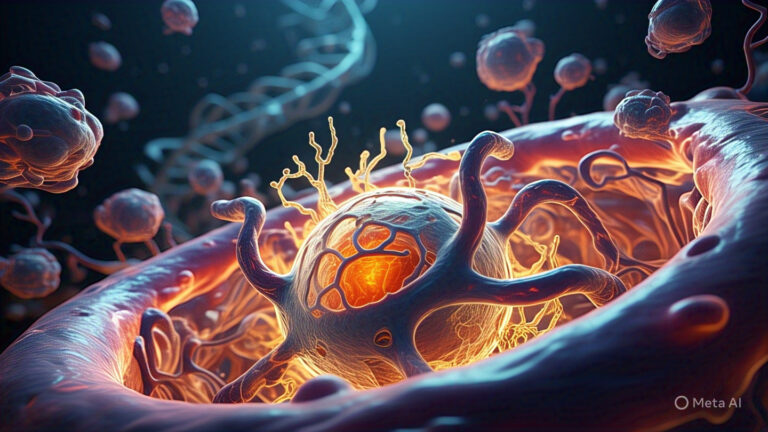Home Remedies for Bloatedness: Your Guide to Natural Relief in 2025
Estimated reading time: 8 minutes
Key Takeaways
- Bloatedness is often caused by diet, stress, or lifestyle habits but can sometimes signal medical issues.
- Natural remedies like ginger tea, peppermint, and walking after meals can provide quick relief.
- Long-term prevention involves smaller meals, hydration, and stress management.
- Seek medical advice if bloating persists or is accompanied by severe symptoms.
Table of Contents
- Introduction to Bloatedness: Understanding the Discomfort
- What Causes Bloatedness? Key Triggers to Know
- Top 10 Home Remedies for Bloatedness: Natural Solutions That Work
- Dietary Tips to Prevent Bloatedness Long-Term
- Lifestyle Changes for Lasting Bloating Relief
- When to Seek Medical Advice for Bloatedness
- Scientific Backing and Credibility of Home Remedies
- Frequently Asked Questions (FAQs) About Bloatedness Remedies
Introduction to Bloatedness: Understanding the Discomfort
Have you ever felt that nagging fullness in your belly after a meal? Bloatedness, often described as abdominal swelling or excess gas, is a common issue that affects many of us. It can leave you sluggish, uneasy, and searching for a quick fix.
Thankfully, nature offers a treasure trove of solutions to ease this discomfort. These home remedies are simple, accessible, and often backed by time-tested wisdom. At WikiHomeRemedies, we’re here to guide you through safe ways to find relief naturally.
A quick note before we dive in—while bloating is usually harmless, persistent or severe symptoms should prompt a visit to a healthcare provider. Safety comes first, and we want to ensure you’re on the right path. Let’s explore why bloating happens and how you can address it with confidence.
What Causes Bloatedness? Key Triggers to Know
Dietary Factors Behind Bloating
What you eat plays a huge role in how your stomach feels. Overeating can stretch your gut, while certain foods like beans, broccoli, or carbonated drinks introduce gas into your system. Food intolerances, such as lactose sensitivity—which impacts roughly 68% of people worldwide per NIH data—can also trigger that uncomfortable swell.
Lifestyle and Stress-Related Causes
Your daily habits matter just as much as your plate. Eating too quickly often means swallowing air, which builds up in your digestive tract. Stress, a silent culprit, tightens your body and slows digestion, while a lack of movement can keep things stagnant in your gut.
Medical and Digestive Issues
Sometimes, bloating points to deeper concerns. Conditions like irritable bowel syndrome (IBS), constipation, or even hormonal shifts during menstruation can cause persistent discomfort. If bloating lingers or worsens, it’s worth exploring these possibilities with a professional to rule out underlying issues.
Understanding these triggers empowers you to choose the right solutions. Let’s move on to natural remedies that can bring swift relief and restore your ease.
Top 10 Home Remedies for Bloatedness: Natural Solutions That Work
Finding relief from bloating doesn’t have to mean reaching for synthetic options. Below, I’ve gathered ten natural remedies that harness the power of nature and tradition. Each method comes with simple steps, reasons why it works, and safety tips to keep in mind.
- Ginger Tea for Digestive Relief
– How to Use: Grate 1 teaspoon of fresh ginger, steep it in a cup of hot water for 5-10 minutes, then sip slowly.
– Why It Works: Ginger’s warming properties help soothe irritation in the gut and reduce gas, as supported by NIH research.
– Precautions: Stick to small amounts if you’re prone to heartburn, as ginger can sometimes irritate.
For convenience, trusted organic ginger tea bags can save time while delivering the same benefits. - Peppermint Tea to Relax the Gut
– How to Use: Steep 1-2 teaspoons of dried peppermint leaves in hot water for 10 minutes, then drink.
– Why It Works: Peppermint relaxes digestive muscles, easing gas buildup, per recent health studies.
– Precautions: Avoid if you have acid reflux, as it may worsen symptoms by relaxing the stomach sphincter. - Fennel Seeds for Gas Reduction
– How to Use: Chew 1 teaspoon of fennel seeds after meals or steep them in hot water for a tea.
– Why It Works: Fennel helps expel trapped gas and calms spasms in the digestive tract.
– Precautions: Use sparingly if you’re allergic to carrots or celery, as cross-reactivity can occur. - Warm Lemon Water to Stimulate Digestion
– How to Use: Squeeze half a lemon into a glass of warm water and drink first thing in the morning.
– Why It Works: Lemon water kickstarts digestion and helps flush out toxins that contribute to bloating.
– Precautions: Don’t overdo it if you have sensitive teeth or stomach lining, as acidity can irritate. - Abdominal Massage for Gut Motility
– How to Use: Gently massage your abdomen in a clockwise circle for 5-10 minutes using light pressure.
– Why It Works: This stimulates gut movement, helping release trapped gas and ease tightness.
– Precautions: Stop if you feel pain, and avoid massaging right after a heavy meal to prevent nausea. - Probiotics from Natural Sources
– How to Use: Include fermented foods like yogurt, kefir, or sauerkraut in your daily meals.
– Why It Works: Probiotics balance gut bacteria, aiding digestion and reducing gas over time.
– Precautions: Start small to avoid temporary bloating as your gut adjusts to new bacteria. - Activated Charcoal for Gas Absorption
– How to Use: Take 500-1000 mg of activated charcoal with water, 30 minutes before a meal.
– Why It Works: It binds to gas in the gut, helping to reduce bloating quickly.
– Precautions: Don’t mix with medications, as it can interfere with absorption—consult a doctor first. - Walking After Meals to Aid Digestion
– How to Use: Take a gentle 10-15 minute walk after eating, keeping a steady pace.
– Why It Works: Movement boosts gut motility, preventing food from sitting too long in your stomach.
– Precautions: Avoid strenuous exercise right after eating, as it can disrupt digestion. - Chamomile Tea for Stomach Calmness
– How to Use: Steep 1-2 teaspoons of dried chamomile in hot water for 5-10 minutes, then sip.
– Why It Works: Chamomile soothes the stomach lining and reduces stress-related bloating with its calming effect.
– Precautions: Skip if you’re allergic to ragweed, as chamomile belongs to the same plant family. - Temporarily Avoiding Gas-Producing Foods
– How to Use: Cut back on foods like beans, cabbage, or soda for a few days to monitor relief.
– Why It Works: Limiting these temporarily reduces gas buildup while you address other triggers.
– Precautions: Don’t eliminate foods long-term without guidance, as they often provide key nutrients.
These remedies offer a gentle way to tackle bloating, drawing from nature’s pharmacy. Try one or two that resonate with you and see how your body responds. Next, let’s look at how small changes in your diet can prevent this discomfort from returning. For more insights on managing gas-related issues, check out our detailed guide on Home Remedies for Bloating Gas.
Dietary Tips to Prevent Bloatedness Long-Term
Shifting how you eat can make a lasting difference in keeping bloating at bay. Here are practical ideas to weave into your routine, explained with care to help you adapt.
- Eat Smaller, Frequent Meals: Overloading your stomach in one sitting often leads to that tight, full feeling. Instead, aim for 5-6 smaller meals throughout the day. This gives your digestive system a chance to process without strain, easing the load.
- Chew Food Slowly: Rushing through bites means swallowing air, which builds up as gas. Take your time, aiming for 20-30 chews per mouthful. This simple habit not only curbs bloating but also helps you savor your food.
- Identify and Limit Trigger Foods: Not all foods agree with everyone—dairy or gluten might be your culprits. Keep a food diary for a week to spot patterns, then reduce those items. It’s about listening to your body’s unique needs.
- Increase Fiber Gradually: Fiber is vital for gut health, but a sudden jump can cause gas. Add it slowly—think 2-3 grams more each day with foods like oats or apples. This steady pace helps your system adjust without discomfort.
- Stay Hydrated for Digestive Health: Water keeps digestion flowing smoothly, preventing buildup. Aim for 8-10 glasses daily, as WHO suggests, to support your gut. Carry a bottle with you as a reminder to sip regularly.
These tweaks aren’t drastic, but they build a foundation for comfort. Let’s explore broader habits that can further support your journey to lasting relief. For additional tips on easing digestive discomfort, read our article on Home Remedies for Gassiness.
Lifestyle Changes for Lasting Bloating Relief
Beyond diet, how you live each day shapes your gut health. Let’s walk through a few adjustments that can bring enduring ease with minimal effort.
Manage Stress for Better Digestion
Stress tightens your body and slows digestion, often worsening bloating. Simple practices like deep breathing for 5 minutes or a gentle yoga pose can unwind that tension. These moments of calm signal your gut to relax and process food better.
Incorporate Regular Physical Activity
Movement keeps your digestive system active, preventing stagnation. A daily 30-minute walk, especially after meals, can work wonders for gut motility. Even light stretching helps, so find what feels right for your rhythm.
Avoid Tight Clothing Around the Abdomen
Snug waistbands or belts press on your stomach, trapping gas and adding discomfort. Opt for loose, breathable attire, particularly after eating. This small shift reduces unnecessary pressure and lets your body breathe.
Maintain Proper Posture During and After Meals
Slouching while eating or lounging right after can hinder digestion. Sit upright during meals and for at least an hour afterward to help food move through naturally. This habit supports your gut’s flow without much thought.
These changes blend seamlessly into everyday life, fostering wellness from the inside out. But it’s also important to know when bloating signals something more—let’s cover that next.
When to Seek Medical Advice for Bloatedness
While home remedies often help, bloating can sometimes hint at deeper concerns. I’m here to guide you on when to reach out for professional support, ensuring you’re safe on this journey.
Warning Signs to Watch For
Pay attention if bloating comes with red flags. Severe belly pain, unexplained weight loss, blood in your stool, or symptoms lasting over two weeks aren’t typical. These could point to something beyond simple gas or diet mishaps.
Possible Underlying Conditions
Persistent bloating might tie to conditions like irritable bowel syndrome (IBS), celiac disease, or even ovarian issues in some cases. Hormonal imbalances or infections could also play a role. Recognizing these possibilities helps you take the next step with clarity.
Importance of Professional Diagnosis
If remedies don’t ease your discomfort or symptoms escalate, a healthcare provider can pinpoint the root cause. They might suggest tests or tailored plans, offering peace of mind. There’s no harm in seeking help—your health deserves that attention.
Trusting your instincts is key. Let’s now explore the foundation behind these natural approaches to solidify your confidence in them.
Scientific Backing and Credibility of Home Remedies
Natural remedies aren’t just folklore—they often carry weight from research and history. Let’s look at why you can rely on these methods, while keeping a balanced perspective.
Evidence Behind Natural Remedies
Ginger, for instance, has shown promising results in reducing gut inflammation, as noted in NIH studies. Peppermint and chamomile have been staples in herbal traditions for calming digestion, with recent reviews in 2025 echoing their value. These solutions draw from both science and time-honored use across cultures.
Limitations and Disclaimers
While these remedies support relief, they’re not a substitute for medical care in serious cases. At WikiHomeRemedies, we lean on reputable sources like WHO and WebMD to ensure accuracy, but individual results can vary. Always pair these tips with awareness of your unique health needs.
This grounding in evidence aims to build trust as you apply these ideas. Let’s wrap up with answers to common questions that might still linger.
Frequently Asked Questions (FAQs) About Bloatedness Remedies
- Is bloatedness always a sign of a serious condition?
No, it’s often tied to diet or minor habits like eating too fast. However, if it persists or comes with pain, seeking medical advice is wise. - What exactly is bloatedness?
It’s a feeling of fullness or swelling in the abdomen, usually from gas or fluid buildup. It’s common and often temporary. - Which foods are most likely to cause bloating?
Beans, cabbage, onions, dairy, and carbonated drinks top the list for many. Tracking your diet can reveal personal triggers. - How do herbal teas compare to over-the-counter bloating meds?
Herbal teas like ginger or peppermint offer gentle, natural relief without side effects for mild cases. Medications might act faster but aren’t always needed. For more on natural digestive solutions, explore our post on Home Remedies for Bad Stomach. - What can I do if home remedies don’t work for bloating?
If bloating lingers despite trying remedies, consult a doctor. They can explore underlying issues and guide you further. For related digestive concerns, see our guide on Home Remedies for Gastritis.
These answers aim to address lingering doubts, rounding out your path to natural relief. With WikiHomeRemedies by your side, you’re equipped to navigate bloating with nature’s support in 2025. For additional support with related tummy troubles, check our article on Home Remedies for Sore Tummy.










